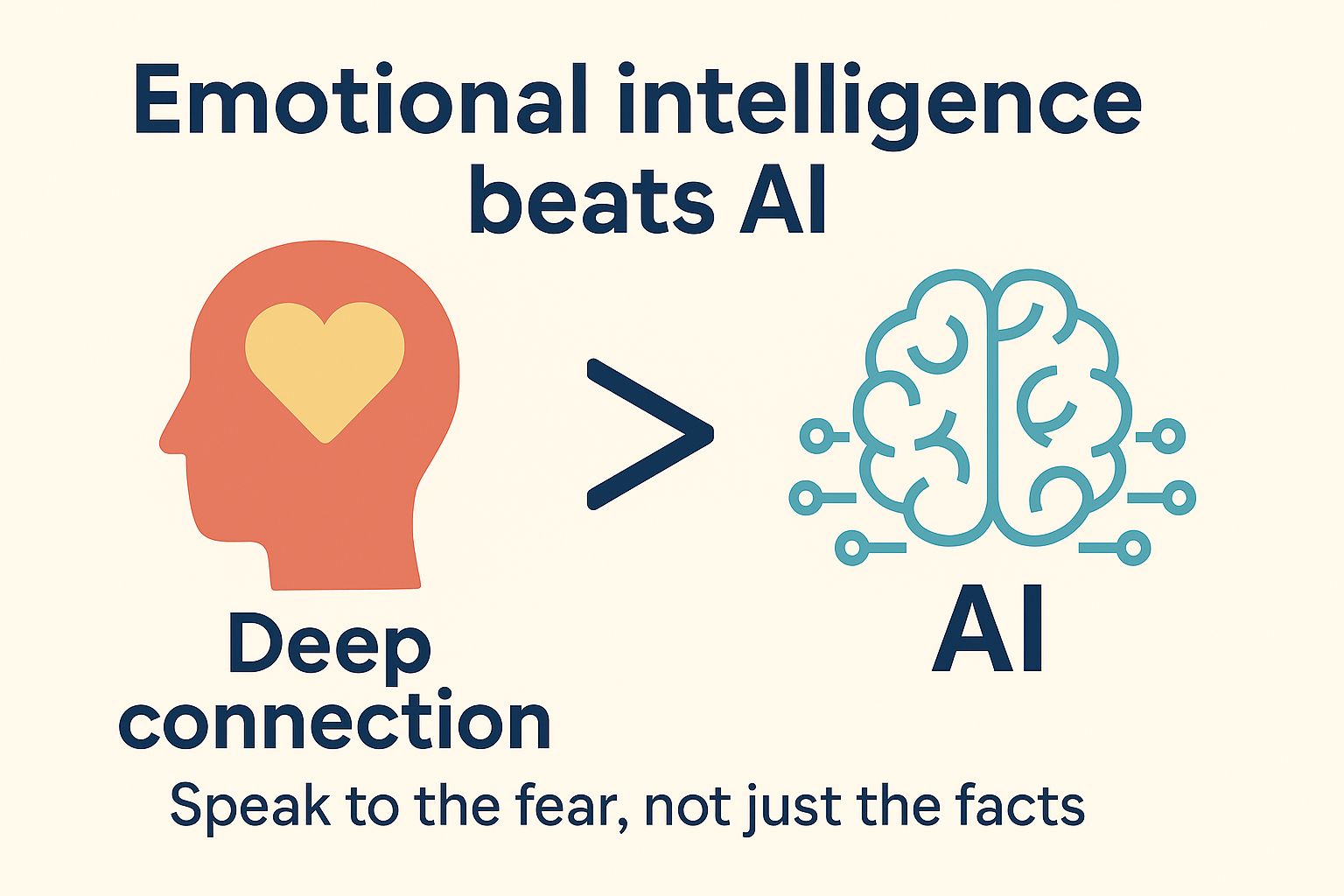The Social Code
The people who trigger you the most are often your greatest teachers - if you're brave enough to listen.
In this issue:
Why the most difficult people are your greatest teachers
The 4-step framework that turns triggers into trust
Why EI beats AI every time
Your toughest relationship questions answered
The conversation script that defuses any defensive person
The Wrong Question at the Wrong Time
Last Tuesday, I wanted to throw my laptop across the room.
I was on a Zoom call with a potential client — let's call him Marcus — who interrupted me seven times in fifteen minutes. Every suggestion I made, he shot down with "That won't work because..." Every question I asked, he answered with why I was asking the wrong thing.
My inner voice was screaming: "This guy is impossible. He's arrogant. He doesn't respect women. He clearly doesn't want my help."
Here's what I learned when I stopped making him wrong and started getting curious about what was really happening...
Marcus wasn't being difficult. He was being desperate.
His company had just lost their biggest client. His team was in chaos. His CEO was breathing down his neck for solutions. And here I was, asking him to slow down and "explore possibilities" when his world was on fire.
The moment I shifted from defending my approach to understanding his panic, everything changed.
Instead of: "Let me explain why this process works..." I tried: "It sounds like you need results yesterday. What would success look like in the next 30 days?"
His shoulders dropped. His voice softened. We had a real dialogue.
Here's what I learned: The people who trigger us aren't usually trying to be difficult. They're trying to be safe. And our job isn't to fix them - it's to understand what safety looks like through their eyes.
The Trigger-to-Trust Framework
Next time someone pushes your buttons, try this:
Step 1: Pause and name the trigger "I'm feeling frustrated because this person is..."
Step 2: Get curious about their world "What might be driving this behavior? What are they afraid of?"
Step 3: Respond to their fear, not their words "It sounds like you're concerned about... Is that right?"
Step 4: Find the shared goal "We both want... How can we get there together?"
The magic isn't in changing them. It's in changing your lens.

AI Insight: Why EI Beats AI
Here's something most people don't know about AI voice agents:
They can process 1,000 conversations simultaneously, speak 50 languages flawlessly, and never need a coffee break. But they'll never master the one thing that matters most in difficult conversations: reading between the lines.
When Marcus said "That won't work," ChatGPT would have heard a rejection.
A human with emotional intelligence heard: "I'm scared, I'm under pressure, and I need you to prove you understand my world before I can trust your solutions."
The competitive advantage?
AI can give you the right words. Only humans can deliver them with the right heart.
Before your next difficult conversation, ask yourself: "What is this person afraid of?" Then speak to the fear, not just the facts.
Because in a world of artificial intelligence, authentic connection becomes infinitely more valuable.

Tools for Transformation: The "Safety First" Script
When someone becomes defensive or resistant, try this phrase that's saved me countless conversations:
Instead of: "You're being unreasonable."
Try: "Help me understand what I'm missing here."
Instead of: "That's not how we do things."
Try: "What would need to be different for this to feel right to you?"
Instead of: "You're wrong about that."
Try: "I see it differently. Can you walk me through your thinking?"
Why it works: You're not challenging their position - you're exploring their perspective. People will fight you for being wrong, but they'll trust you for being curious.
This week's practice: Pick one person who regularly triggers you. Before your next interaction, ask yourself: "What is this person trying to protect?" Then respond to their protection instinct, not their words.
I uploaded few more thoughts on my Podcast
Let me know what you think….
Tell me what you think..
As some of you might know, I keep on going two separate newsletters - One is a founder-lead newsletter for Voice2Me.ai, called “The Power of Voice”, where I share AI news, company updates and my personal journey from a Fortune 500 executive "drop-out" to an entrepreneur, winds, set backs and everything in between and this one, The Social Code, where we have an intimage dialogues about the impact of conversation, AI and human connections.
Should I merge two newsletters in one? Or keep them going separately?
Two Separate Newsletters or Merge?
Reader Q&A: Your Toughest Questions
I read every single reply. Here are this week's burning questions:
Q: "Eva, my teenage daughter shuts down every time I try to talk about her grades. How do I get through to her?" — Sam K.
A: Sam, she's not shutting down because she doesn't care. She's shutting down because she feels judged. Try this: Instead of leading with grades, lead with connection. Ask: "How are you feeling about school right now?" Listen to understand, not to fix. Trust me - the grades conversation will come naturally once she feels safe.
Q: "What do I do when my boss consistently takes credit for my ideas in meetings?" - David R.
A: David, this is about visibility, not confrontation. Before the next meeting, send an email summarizing your ideas with a timestamp. Then in the meeting, say: "As I outlined in my email yesterday..." This creates a paper trail while maintaining professionalism. If it continues, schedule a private conversation using the Safety First script above.
Q: "How do I handle a colleague who constantly interrupts me during presentations?" — Maria L.
A: Maria, try this power move: Pause mid-sentence, look directly at them, and say with a smile: "I can see you have thoughts on this. Let me finish this point and then I'd love to hear your perspective." It's firm but friendly, and it puts the spotlight on their behavior without being confrontational.
Your turn: What relationship challenge are you facing right now? Hit reply and ask me anything. Your question might be featured next week.

Final Thoughts
I used to think difficult people were obstacles to overcome.
Now I know they're mirrors reflecting back the parts of myself I haven't learned to handle yet.
Marcus taught me that my need to be heard was getting in the way of my ability to listen. My trigger wasn't his interrupting — it was my fear that I wasn't being valued.
The people who challenge us aren't roadblocks. They're practice partners for becoming the humans we're meant to be.
What if, instead of avoiding difficult people, we started seeing them as our greatest teachers?
What if every triggered moment was actually a moment of growth?
Your most challenging relationship might just be your most important classroom.
The question isn't whether you'll encounter difficult people this week. The question is: Will you let them teach you something?
Stay curious,
Eva



